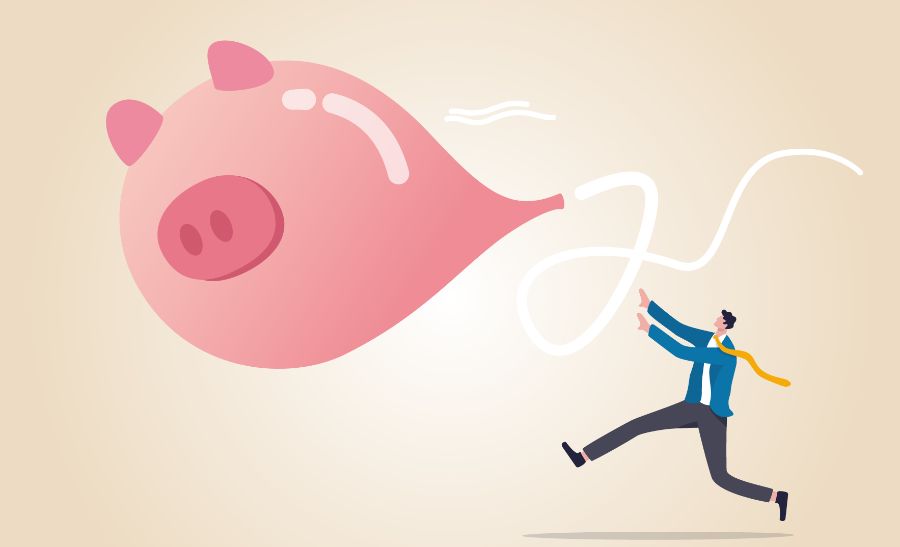Today, we present the latest on inflation and Wall Street bonuses. Welcome to a good news, bad news edition of The Line.
Retail Sales Rose Less than Expected in February
The core personal consumption expenditures price index—or PCE for short—rose 0.4% last month, and was 2.8% higher than a year ago. Both figures were higher than expected.
You may be wondering why the PCE index came in higher than expected when CPI came in lower than expected. Great question. Remember that the PCE report gives us a better picture of both inflation and spending, as it’s based on a more complete set of data than CPI and retail sales. It also accounts for changes in consumer behavior and places less emphasis on housing than CPI. For these reasons, the core PCE price index is the Fed’s preferred measure of inflation and spending.
Here are some other findings of the BEA’s PCE report:
- The 0.4% monthly increase in the core PCE price index was its highest monthly increase since January 2024.
- Consumer spending rose 0.4% in February, slightly below forecasts, but still higher than the 0.2% increase in retail sales.
- Personal income rose 0.8% last month, much higher than the 0.4% estimate.
Here’s what all this means:
- Fed rate cuts aren’t coming any time soon, as inflation is still almost a full percent above its 2% annual target.
- While the 10-year Treasury rate fell this morning, higher-than-expected inflation reports usually mean higher mortgage rates are coming.
- Incomes rose at double the rate of prices last month, so for now, consumers can keep spending.
Now for some good news.
Wall Street Bonuses Reach $47.5 Billion in 2024
That’s not a misprint, Wall Street bonuses rose 34% last year to a record $47.5 billion. While that headline is great news for the NYC economy and housing market, we can’t help but be a little jealous. Here’s why:
$47.5 billion is enough to buy every home for sale in Manhattan right now and still have almost $22 billion left over.
$47.5 billion works out to an average bonus of $244,700 per worker.
How’s it possible for Wall Street firms to pay out so much in bonuses for last year? How about a 90% jump in profits? Yep, profits rose 90%, from $26.3 billion to $49.9 billion.
Here are a couple more bits of information that show how important Wall Street is to New York State and New York City:
Wall Street accounts for 19% of all NYS’ tax collections each year, and 7% of NYC’s tax revenue.
The NYS Comptroller estimates the 2024 bonuses will generate $600 million more in state income tax revenue and $275 million more in NYC income tax than the previous year.
Wall Street is responsible for 18% of all economic activity in NYC.
For those who want to read more, here is a link to the NYS Comptroller’s report.
One Last Thing
Today is my 27th wedding anniversary, so I’d like to wish a very happy anniversary to my wife Jo-Ann. You are a wonderful wife and mother, and the sweetest person I have ever met. Let’s hope you can put up with me for another 27 years!
